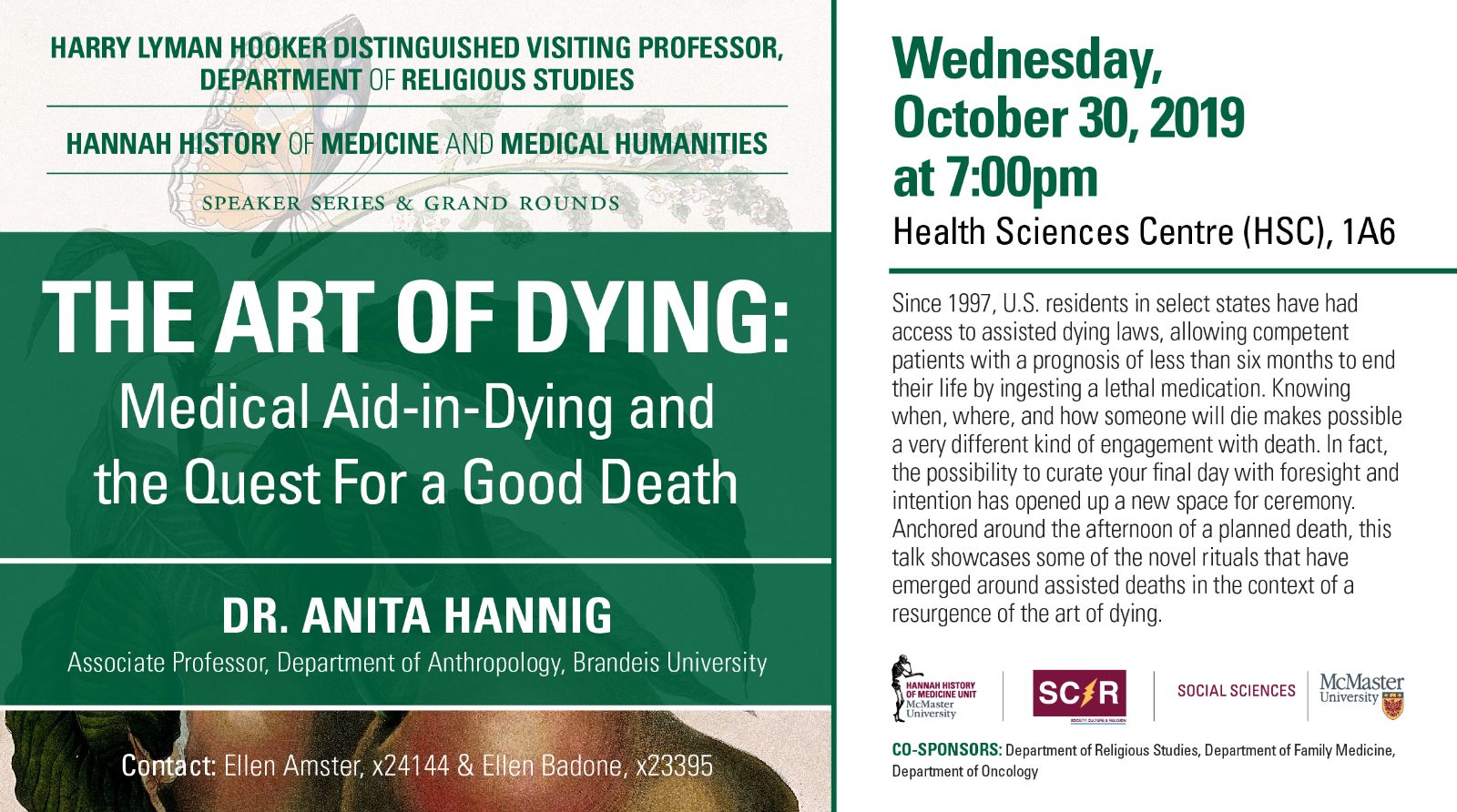Abstract: Since 1997, U.S. residents in select states have had access to assisted dying laws, allowing competent patients with a prognosis of less than six months to end their life by ingesting a lethal medication. Knowing when, where, and how someone will die makes possible a very different kind of engagement with death. In fact, the possibility to curate your final day with foresight and intention has opened up a new space for ceremony. Anchored around the afternoon of a planned death, this talk showcases some of the novel rituals that have emerged around assisted deaths in the context of a resurgence of the art of dying.
Biography
Anita Hannig is Associate Professor of Anthropology at Brandeis University, where she teaches classes on medicine, death, and dying. She earned her Master’s and PhD in anthropology from University of Chicago. Her first book, Beyond Surgery (2017), won the Eileen Basker Memorial Price from the Society for Medical Anthropology in home discipline, and her work has been supported by numerous grants and fellowships. Since 2015, Hannig has conducted research on assisted dying in Oregon and Washington, working with patients, caregivers, physicians, and lawmakers to understand how access to these laws is changing the ways Americans view and manage the process of dying. She is currently writing up her findings for her upcoming book, The Day I Die: Assisted Dying in the Age of Medicine.
This talk is co-sponsored by the following:
Department of Religious Studies
Department of Family Medicine
Department of Oncology
Hannah History of Medicine and Medical Humanities Speaker Series
The Harry Lyman Hooker Distinguished Visiting Professorship is made possible by the Faculty of Social Science.
The Hannah History of Medicine and Medical Humanities Speaker Series is made possible by an endowment from Associated Medical Services, AMS.



